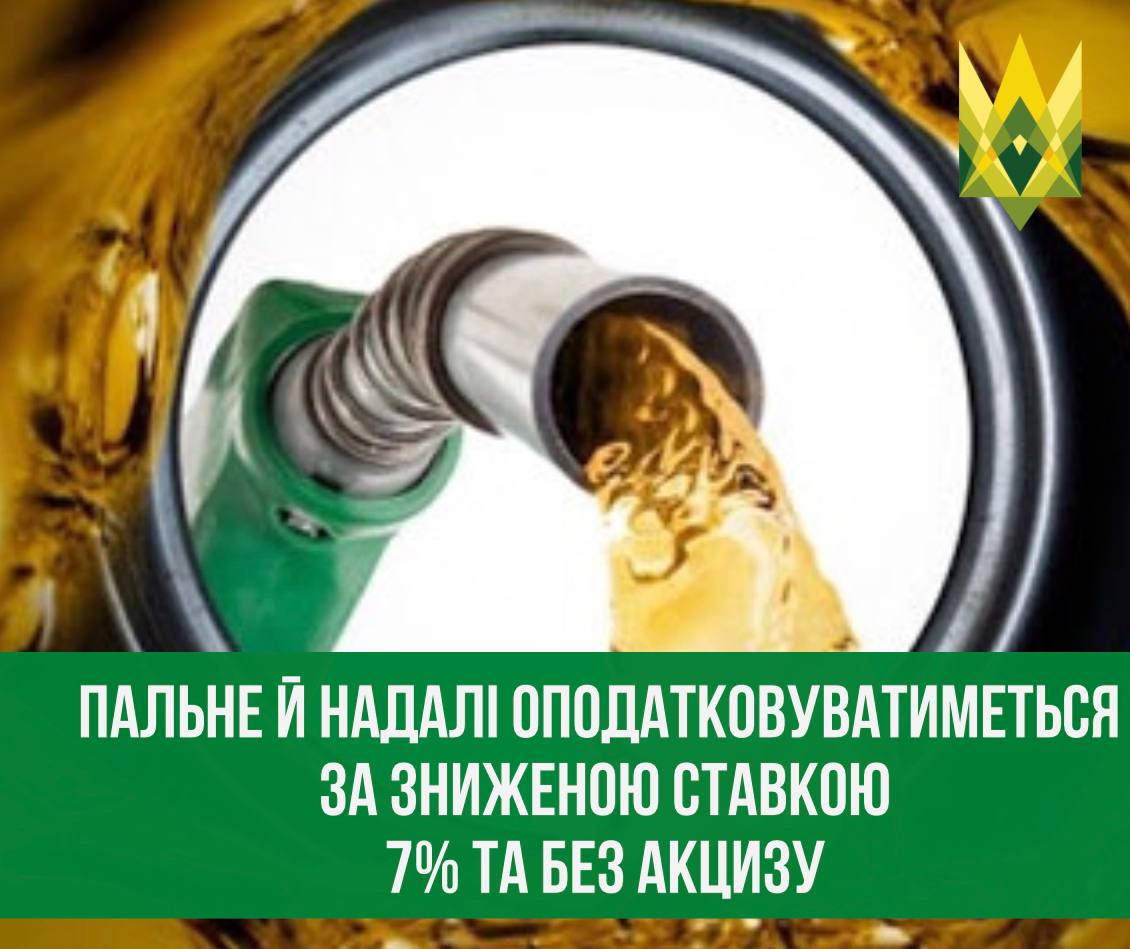
The Tax Committee of the Verkhovna Rada recommended adopting in the first reading the draft law №7311-d with a list of tax changes.
"The draft bill contains many amendments in terms of taxation. Here you need to be balanced so that, on the one hand, not to harm people and businesses, on the other - to fill the budget. On the positive side, the legislator listened to the position of business and rejected the original idea of increasing fuel taxes. Fuel will continue to be a subject to VAT at a reduced rate of 7% and without excise duty," said Dmytro Kokhan, UAC's adviser on cooperation with public authorities.
In his opinion, the abolition of these benefits for fuel taxation could increase the cost of fuel by at least UAH5-7 per liter. While sowing, this norm would significantly increase the cost of spring field work, as fuel is an essential component of funds. In general, rising fuel costs could lead to a new round of inflation, as they will increase the cost of logistics, production and the final cost of all goods in the country.
"At the same time, we welcome the introduction of VAT on imports for those working under the new simplified taxation system (2% of turnover). The current norms actually put domestic producers in a worse position than foreign ones and helped to replace domestic goods with imported ones,” commented Dmytro Kokhan, the UAC's adviser on cooperation with authorities.
Also, in his opinion, the relevant law should be amended in terms of VAT refund. In the case of VAT refunds to enterprises in the form of government bonds, income from the sale of such bonds should not be taken into account when calculating the share of agricultural production to confirm the status of agricultural taxpayer (single tax of the fourth group) whose income from the sale of agricultural products must be at least 75% of total income. When selling a bond, in this case we are talking about a VAT refund, but not income
The main provisions of the bill №7311-d are proposed to introduce:
- increase the rate of military duty from 1.5% to 3% during martial law;
- companies with simplified taxation have to pay VAT and import duties again;
- internal checks on the timeliness of reporting and payment of taxes are resumed.
- exemptions from VAT, excise duties and customs duties on the import of vehicles are abolished. There are still benefits for the import of all-wheel drive jeeps until 2017, necessary for the needs of the Armed Forces of Ukraine;
- fuel will continue to be subject to reduced VAT and excise duty;
- budget reimbursement for January 2022 the taxpayer will be able to receive in the bonds of domestic government loans (DGL);
- for the period of martial law it is allowed to import into Ukraine tractors, trucks, special equipment that meet the Euro-3 criterion;
- the privilege, which for 6 months after the end of martial law postponed the payment of taxes in case of inability to pay them now, is abolished. Such a privilege remains for those who are in the territory where hostilities are taking place;
- for the period of martial law and 180 days thereafter, pensions are granted to IDPs without documents on the basis of data from registers;
- for the period of martial law or state of emergency, economic entities that have a license for the production of undenatured ethyl alcohol are allowed to produce denatured ethyl alcohol and/or bioethanol;
- non-taxable charitable assistance provided as a result of the armed aggression of the Russian Federation must be distributed through charitable organizations or through state or local budgets;
- expanding the possibility of being on the simplified system for the period of martial law to those entities that produce water to meet drinking and hygiene needs;
- the financial support of servicemen, law enforcement officers, etc. is exempt from taxation by the military tax;
- the period of non-payment of single social tax by individuals during martial law is included in the insurance period;
It will be recalled that in March, the Verkhovna Rada passed a bill №7137-d, which introduced tax benefits for business and the abolition of excise duty on fuel.
Friday, 29 April 2022